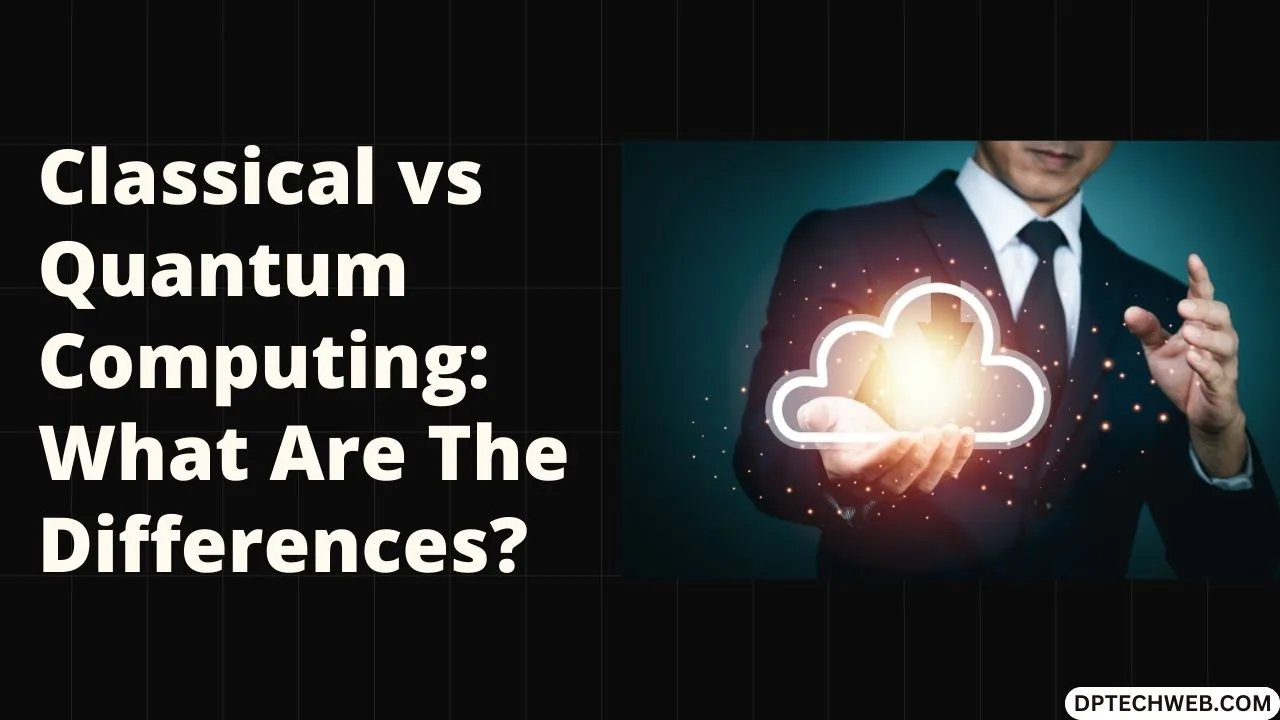Introduction
Welcome to the enthralling realm of computing, where classical and quantum paradigms collide! In this tech-savvy age, our lives are interwoven with computers, from the smartphone in our pockets to the servers hosting the vast expanse of the internet. While classical computing has been the backbone of our digital world, quantum computing has emerged as a disruptive force, promising unparalleled computational power.
In this article, we embark on an epic journey to decipher the dissimilarities between classical and quantum computing. Strap on your seatbelts, for we are about to traverse through bits, qubits, and everything in between! So, without further ado, let’s plunge into the captivating universe of Classical vs. Quantum Computing: What are the Differences?
The Classic World of Computing
In this section, we will lay the groundwork for classical computing, setting the stage for a comprehensive comparison later on. So, what is classical computing all about?
Bits: The Language of Classical Computing
In classical computing, the fundamental unit of information is the bit, short for binary digit. Bits can take on two distinct values: 0 or 1. They are the building blocks of data, encoding information through a series of 0s and 1s, which are processed by classical computers using logic gates.
Processing Power
Classical computers excel at handling complex algorithms and performing a vast array of tasks, from simple arithmetic to intricate simulations. However, as the size of problems grows exponentially, classical computers may struggle to provide feasible solutions due to the limitations of classical bits.

Unveiling the Quantum Realm
Get ready to leap into the bizarre and exhilarating world of quantum computing! With its entangled qubits and superposition states, quantum computing presents an enthralling contrast to classical computing.
Qubits: The Enigmatic Quantum Elements
In quantum computing, the basic unit of information is the qubit, short for quantum bit. Qubits possess a unique characteristic known as superposition, allowing them to exist in multiple states simultaneously. Unlike classical bits, which can be either 0 or 1, qubits can represent 0, 1, or both at once!
Superposition and Entanglement
The phenomenon of superposition enables quantum computers to perform an astronomical number of calculations in parallel. Imagine exploring multiple paths at once, swiftly arriving at the most efficient solution! Additionally, qubits can become entangled, meaning the state of one qubit instantaneously affects another, even if they are light-years apart.
Clash of Titans: Classical vs. Quantum Computing
Let the showdown begin! In this section, we’ll delve deeper into the discrepancies between classical and quantum computing and explore scenarios where one outshines the other.
Processing Power Reimagined
Classical Computing: In the realm of classical computing, information is processed using classical bits, where each bit represents a 0 or 1. As problems increase in complexity, classical computers may face limitations in processing power, requiring more time to reach solutions.
Quantum Computing: Quantum computers leverage the unparalleled power of qubits in superposition to explore multiple solutions simultaneously. This capability, known as quantum parallelism, grants quantum computers tremendous potential for solving complex problems exponentially faster than classical computers.
Algorithms and Optimization
Classical Computing: Classical algorithms, such as the ones used in search engines and data analysis, have been finely tuned over the years to deliver efficient results. However, there are certain problems, such as factoring large numbers, which prove to be immensely challenging for classical computers, consuming vast amounts of time.
Quantum Computing: Quantum algorithms, like Shor’s algorithm, can factorize large numbers exponentially faster than any known classical algorithm. This has significant implications for cryptographic systems, which rely on the difficulty of factoring large numbers to ensure security. Quantum computing poses both a threat and an opportunity in this regard.
Error Correction and Stability
Classical Computing: Classical computers employ sophisticated error-correction codes to mitigate data errors during computation. This ensures the stability and reliability of results, allowing for accurate and consistent output.
Quantum Computing: Quantum computing faces a daunting challenge due to the fragile nature of qubits. Interactions with the environment can cause qubits to lose their quantum state, resulting in errors known as decoherence. Overcoming this hurdle remains a significant obstacle in the path of quantum computing’s progress.
FAQs
1. What makes quantum computing more powerful than classical computing?
Quantum computing’s power lies in its ability to perform complex calculations exponentially faster by leveraging superposition and entanglement. Classical computers process information sequentially, while quantum computers process multiple possibilities simultaneously, leading to exponential speedup for certain problems.
2. Can quantum computers replace classical computers?
While quantum computing holds great promise, it is unlikely to replace classical computers entirely. Quantum computers excel at solving specific types of problems, especially those that are computationally intensive. Classical computers will continue to be more practical for everyday tasks and general-purpose computing.
3. Are quantum computers commercially available?
As of the current date, quantum computers are still in the early stages of development. While there have been significant advancements in quantum hardware and algorithms, commercially viable and widely accessible quantum computers are yet to become mainstream.
Conclusion
And there you have it! We’ve taken an exhilarating journey through the contrasting worlds of classical and quantum computing, unearthing the differences that set them apart. Classical computing, with its solid foundation in bits and stable algorithms, has served us remarkably well. On the other hand, quantum computing’s extraordinary potential for parallelism and its prowess in solving complex problems make it a captivating realm of exploration.
As we stand at the precipice of a quantum revolution, it’s essential to understand that both classical and quantum computing have their unique strengths and limitations. Classical computing will continue to be an integral part of our daily lives, ensuring the smooth functioning of our digital world. Meanwhile, quantum computing’s ongoing progress will bring unprecedented advancements in various fields, from cryptography to drug discovery and optimization problems.
